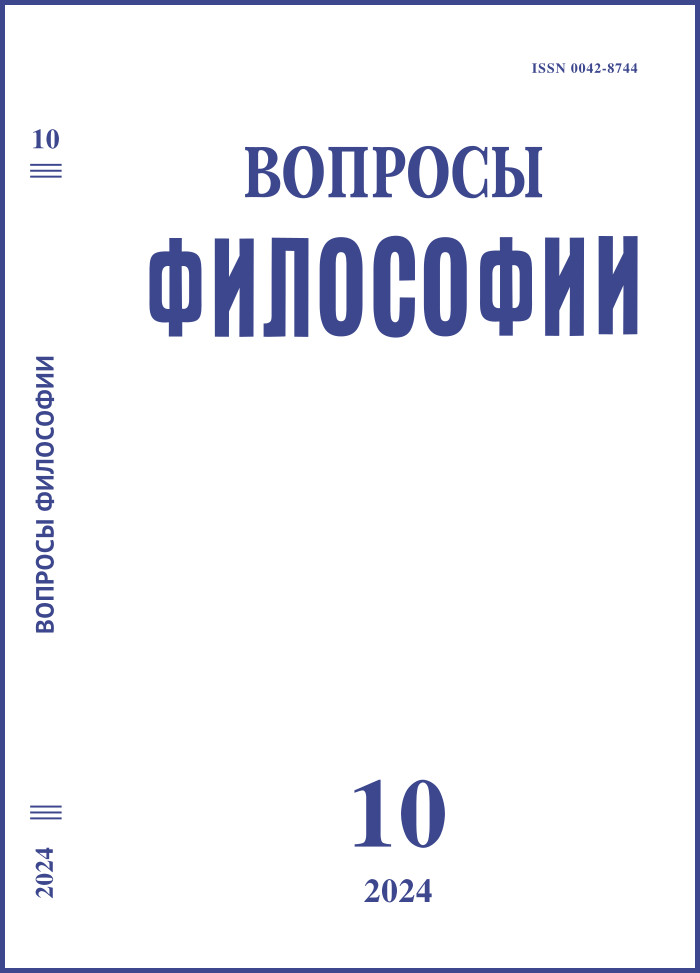Knowledge and Subjectivation: Kant’s Pragmatic Anthropology as Read by Foucault
DOI:
https://doi.org/10.21146/0042-8744-2024-10-81-91Keywords:
subject, self, finitude, scientific knowledge, Foucault, Kant, anthropology from a pragmatic point of view, practical philosophyAbstract
The article outlines a hypothesis about the influence of Foucault’s interpretation of Kant’s “Anthropology from a pragmatic point of view” on actual research of models of the subject based on scientific knowledge. Such models include cerebral, genetic, immune subjects, etc., studied by a group of approaches in the history and sociology of science, as well as in philosophy. In the introduction, a brief overview of the concept of the cerebral subject is given, the main properties of this type of subject models are derived, which differ from traditional philosophical subjects, closed in the immanence of philosophical thinking. The subjects thematized in this group of approaches are multiple, partial and situational (depending on the situation, an individual can adopt different models), changeable (circulating, they can mutate from practice to practice), historical and performative (they are embodied in practices). The approaches themselves are anti-essentialist in nature, since they imply a critical attitude towards the naturalization of subjects carried out by sciences and non-scientific institutions. Their predecessor was Foucault’s thematization of human in “The Order of Things” and in the commentary to Kant’s pragmatic anthropology. It is shown that Foucault’s ideas can be traced in the discussed approaches to the study of subjectivation based on scientific experience

